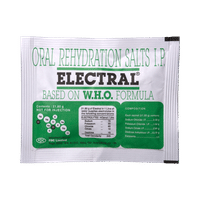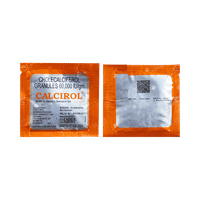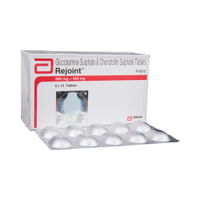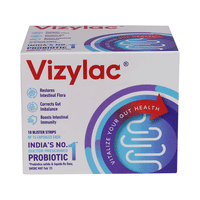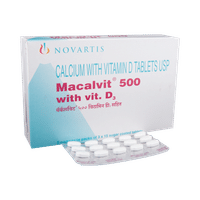Coryl Tablet

food interaction for Coryl
alcohol interaction for Coryl
pregnancy interaction for Coryl
lactation interaction for Coryl
food
alcohol
pregnancy
lactation
Coryl Tablet may be taken with or without food, but it is better to take it at a fixed time.
Take it with food if stomach upset occurs.
Avoid Coryl Tablet with caffeine and chocolate as well as food containing caffeine and chocolate such as tea leaves, cocoa beans.
Take it with food if stomach upset occurs.
Avoid Coryl Tablet with caffeine and chocolate as well as food containing caffeine and chocolate such as tea leaves, cocoa beans.
CAUTION
It is unsafe to consume alcohol with Coryl Tablet.
UNSAFE
Coryl Tablet is unsafe to use during pregnancy as there is definite evidence of risk to the developing baby. However, the doctor may rarely prescribe it in some life-threatening situations if the benefits are more than the potential risks. Please consult your doctor.
CONSULT YOUR DOCTOR
Coryl Tablet is probably unsafe to use during breastfeeding. Limited human data suggests that the drug may pass into the breastmilk and harm the baby.
Coryl Tablet should be used for short periods and sleepiness of the baby should be watched. The withdrawal of Coryl Tablet should be gradual.
Coryl Tablet should be used for short periods and sleepiness of the baby should be watched. The withdrawal of Coryl Tablet should be gradual.
CONSULT YOUR DOCTOR
SALT INFORMATION FOR Coryl
Paracetamol(500mg)
Uses
Paracetamol is used for pain relief and fever. It is used to relieve pain in conditions like headache, muscle pain, or dental pain.
How it works
Paracetamol is an analgesic (pain reliever) and anti-pyretic (fever reducer). It works by blocking the release of certain chemical messengers that cause pain and fever.
Common side effects
Nausea, Vomiting, Insomnia (difficulty in sleeping), Headache, Constipation, Itching, Nephropathy, Hypersensitivity, Platelet disorders, Depression, Confusion, Hallucination, Abnormal vision, Hypoglycemia (low blood glucose level), Sterile pyuria, Liver toxicity, Hemorrhage
Phenylephrine(2.5mg)
Uses
Phenylephrine is used in common cold.
How it works
Phenylephrine is a decongestant. It works by narrowing the small blood vessels which provides temporary relief from inflammation (redness and swelling) and discomfort.
Common side effects
Nausea, Vomiting, Headache, High blood pressure, Arrhythmia (irregular heartbeats), Blurred vision, Breathlessness, Itching, Restlessness, Reflex bradycardia, Excitation, Epigastric pain, Neck pain, Tremors, Hypertensive crisis, Eye pain, Stinging in the eyes, Photophobia, Conjunctival sensitivity, Preterm and low birth weight infants, Fainting, Myocardial infarction, Subarachnoid hemorrhage
Diazepam(2mg)
Uses
Diazepam is used in the treatment of short term anxiety, alcohol withdrawal, muscle spasm and epilepsy.
How it works
Diazepam is a benzodiazepine. It works by increasing the action of a chemical messenger (GABA) which suppresses the abnormal and excessive activity of the nerve cells in the brain.
Common side effects
Drowsiness, Fatigue, Confusion, Depression, Dizziness, Dryness in mouth, Headache, Impaired concentration, Slurred speech, Urinary retention, Abnormality of voluntary movements, Sensory motor disorders, Tremors, Withdrawal symptoms, Anterograde amnesia, Balance disorder (loss of balance), Respiratory depression, Allergic skin condition, Gastrointestinal disorder, Salivary hypersecretion, Myasthenia (weakness and rapid fatigue of muscle), Blood dyscrasias, Insomnia (difficulty in sleeping), Loss of consciousness, Psychiatric disturbances, Paradoxical reactions, Emotional lability, Change in alertness, Heart failure, Hypotension (low blood pressure), Increased appetite, Abnormal liver function tests, Vision disorder, Apnea (absence of breathing), Anaphylactic reaction
Diphenhydramine(5mg)
Uses
Diphenhydramine is used in the treatment of nasal allergy symptoms, motion sickness and insomnia.
How it works
Diphenhydramine is an antihistaminic medication. It blocks the action of certain chemical messengers that are responsible for inflammation, congestion, itching, and other allergic reactions.
Common side effects
Dizziness, Drowsiness, Dryness in mouth, Blurred vision, Confusion, Convulsion, Difficulty in paying attention, Difficulty in urination, Fatigue, Headache, Hypersensitivity, Urinary retention, Muscle twitching, Palpitations, Sedation, Unsteadiness, Impaired coordination, Epigastric pain, Increased bronchial secretions, Dry mucous membrane, Constipation, Euphoria (feeling of intense excitement and happiness), Abnormality of voluntary movements, Discomfort when urinating, Hypotension (low blood pressure), Double vision, Diaphoresis, Erectile dysfunction, Early menstrual periods, Decreased appetite, Allergic sensitization, Photosensitivity, Eczematous eruptions, Agranulocytosis (deficiency of granulocytes in the blood), Paradoxical reactions, Depression, Sleep disturbance, Paresthesia (tingling or pricking sensation), Involuntary muscle movement, Tachycardia, Arrhythmia (irregular heartbeats)
SUBSTITUTES FOR Coryl
1 Substitutes
1 Substitutes
Sorted By
 Rs. 7.41save 69% more per Tablet
Rs. 7.41save 69% more per Tablet
Expert advice FOR Coryl
- Paracetamol should be taken with food or milk to prevent upset stomach.
- Take it as per the dose and duration prescribed by your doctor. Long term use may lead to serious complications such as stomach bleeding and kidney problems.
- Do not take indigestion remedies (antacids) within 2 hours of taking Paracetamol.
- Avoid consuming alcohol while taking this medicine as it can increase your risk of stomach problems.
- Inform your doctor if you have liver disease as your dose may need to be adjusted.
- Your doctor may regularly monitor your kidney function, liver function and levels of blood components if you are taking this medicine for long-term treatment.
Frequently asked questions FOR Coryl
Paracetamol
Q. What if I vomit after taking Paracetamol?
If you vomit in less than 30 minutes after having a dose of Paracetamol tablets or syrup, retake the same dose again. If you vomit after 30 minutes of a dose, you do not need to take another one until the next standard dose.
Q. When will I feel better after taking the Paracetamol?
Usually, you will start feeling better after about half an hour of taking a Paracetamol.
Q. How often can I take the Paracetamol?
You should only take four doses of Paracetamol in 24 hours. There should be a gap of at least 4 hours between two doses. Do not take Paracetamol for more than 3 days without consulting a doctor first.
Phenylephrine
Q. Is it safe to use Phenylephrine?
Yes, Phenylephrine is safe for most of the patients. However, in some patients, it may cause side effects like nausea, vomiting, headache, fatigue, dizziness, dryness in the mouth, sleepiness and allergic reaction. If you experience any persistent problem while taking this medication, inform your doctor as soon as possible.
Q. Can the use of Phenylephrine cause dizziness?
Yes, the use of Phenylephrine can cause dizziness (feeling faint, weak, unsteady or lightheaded) in some patients. If you feel dizzy or lightheaded, it is better to rest for sometime and resume once you feel better. Do not drive or use any machines. Consult your doctor if the side effect persist or worsen.
Q. Can the use of Phenylephrine cause nausea and vomiting?
Yes, the use of Phenylephrine can cause nausea and vomiting. To avoid nausea one can take Phenylephrine with milk, food or with antacids. If vomiting occurs, drink plenty of water or other fluids. Talk to your doctor if vomiting persists. You should let your doctor know if you are unable to drink water and there are signs of dehydration, like dark colored and strong-smelling urine and a low frequency of urination. Avoid taking fatty or fried foods along with this medication. Do not take any other medicine without consulting your doctor.
Diazepam
Q. Is Diazepam an antidepressant? What is it used for?
Diazepam is not an antidepressant and belongs to a group of medicines called benzodiazepine. It is used to treat severe anxiety (an emotional state where you may sweat, tremble, feel anxious and have a fast heartbeat) or agitation. It is also used to treat trembling, muscle spasm due to tetanus or poisoning, seizures or fits, confusional states or anxiety associated with alcohol withdrawal. It also helps in relaxing patients before minor operations or procedures.
Q. How long does it take for Diazepam to start working?
It depends on what you are taking Diazepam for. If you are taking it to treat anxiety, you should start feeling better within a few hours, but it may take a week or two before the full benefits become evident. Similarly, if you are taking it to relieve muscle spasm you may notice a difference after 15 minutes. Your muscles will start relaxing when you keep taking Diazepam regularly for a few days.
Q. Does Diazepam cause sleepiness? If yes, then should I stop driving while taking Diazepam?
Yes, Diazepam causes drowsiness very commonly. It also causes forgetfulness and affects muscular function which may adversely affect your ability to drive. Sometimes, drowsiness persists even on the following day. So, in case Diazepam makes you sleepy and affects your alertness, you should avoid driving.
Diphenhydramine
Q. Is diphenhydramine a blood thinner/narcotic/water soluble?
No, it is an antihistaminic drug and not a blood thinner or narcotic
Q. Is Diphenhydramine Hcl the same as Benadryl?
Benadryl is a trade name of product containing the drug Diphenhydramine
Q. Is diphenhydramine hydrochloride/Benadryl safe?
It is safe if used at prescribed doses for the prescribed duration as advised by your doctor














